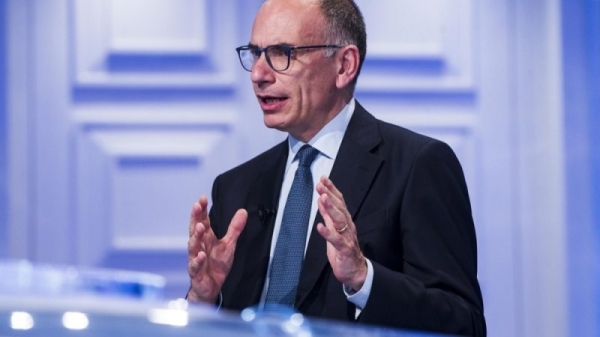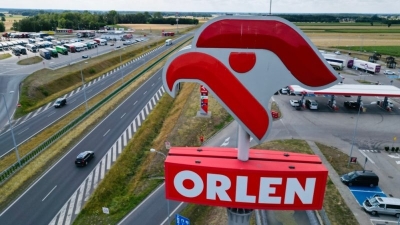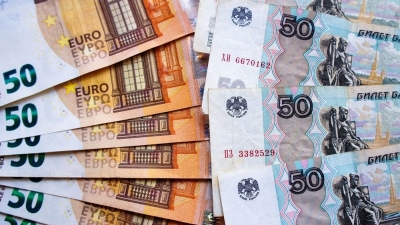Letta’s report aligns with views of major telecoms on market integration

Laying out his vision of a harmonised single market in the telecommunications sector, former Italian prime minister Enrico Letta aligned with some of the talking points by the EU’s largest telecom players, according to a draft report seen by Euractiv.
European leaders asked Letta, currently an MP (PD, S&D) in Italy, to deliver a report on the state of the EU’s single market, which will be presented to EU leaders on Thursday (18 April).
The report dedicates nine out of 147 pages to telecoms, arguing that in this sector, the “fragmentation in rules and industries at the national level” hinders a “final step towards a single market. A “maximum harmonisation” of the telecoms rules is needed, Letta wrote.
While the EU regulatory framework has “delivered a wide increase in consumer welfare,” it is not fit for the future, the draft report said.
The former national monopolies, now the EU’s major telecom operators, argue that the bloc’s regulatory framework created artificial competition. This, they argue, squeezes their margins to the point where they can no longer invest in new infrastructure, with the risk of deteriorating the future quality of their services.
They have pushed for loosened competition rules, particularly to allow mergers between companies within national markets.
On the other hand, the European body of regulators BEREC, the organisation of competitive telcos ECTA, and the European consumer organisation BEUC, argue against regulatory intervention because the telecom market does not present any tangible failure.
Letta sided with the industry, reiterating one of their talking points about how EU telecoms have 20 to 100 times fewer subscribers than their Chinese and American counterparts, respectively.
He wrote that cross-border consolidation should be fostered, but also suggests “some level of consolidation within national markets.”
If industry does not deliver the necessary amount of investments needed for the future of connectivity, “European consumers risk losing the benefits they have gained” so far through competition policy, he warned.
Asked whether consolidation will lead to a US-style system where there are effectively only three telecom companies, Letta told a briefing on Wednesday there can be a middle way to the EU’s current predicament, with roughly 100 operators.
Roadmap to unification
In the report, Letta made several operational and technical suggestions to integrate the EU telecoms market; moving towards an EU-level regulatory body, and unifying policies for allocating spectrum.
Crucially, Letta hinted at the Commission being the right body to unify and enforce an EU-wide telecoms regulation. He suggested looking at the recent EU tech legislation like the Artificial Intelligence Act or Digital Services Acts, which have given sweeping powers to the Commission.
By 2025, this more Europeanised way of telecom governance should be achieved, he wrote. By then, there should be “a unified regulatory framework” across the bloc, “moving towards a single regulatory authority” and a two layer approach with national authorities.
By 2027, radio spectrum policy should be unified. Currently, member states determine radio spectrum allocation, usually selling spectrum bandwidths through auctions. Telecom operators claim the auction model dicentivises future infrastructure investments.
Letta also suggested that a common framework of bandwidth allocation and auctions be set up by 2029 on the upper 6 GHz frequency, used for next-generation WiFi.

EU Single Market Report: Letta advises integration of the European telecoms market
Telecoms is one of the “primary reason[s] for Europe’s declining competitiveness,” according to a draft of Letta’s report seen by Euractiv.
Level-playing field
Unifying the telecoms market would incentivise “the necessary investments” to upgrade EU infrastructure, the report stated. The European Commission has calculated a €174 billion investment gap to achieve its 2030 digital goals.
Letta also wrote there is a need to balance the relationship between telecom operators and big tech.
For him, the antitrust regulation of the Digital Market Act (DMA) and the EU’s moderation regulation of the Digital Services Act (DSA) only “started to effectively address” the regulatory imbalance.
Net neutrality
The EU executive should “provide operators with […] a recommendation” by 2024 on network slicing on 5G, the report said. This practice entails splitting up a telecoms network so that different applications can be offered a different quality of services.
However, this is seen as a threat to the principle of net neutrality enshrined in the Telecommunications Single Market regulation, which disallows discriminating against different types of internet traffic.
Letta argued in the report that network slicing is important for robotics and AI, including autonomous driving, and explains that a Commission recommendation would “give operators more flexibility and clarity when deploying services.”

Orange-MásMóvil merger ‘approved with very good remedy’, says EU’s Vestager
The European Commission accepted on Tuesday (20 February the €18.6 billion deal between Orange and MásMóvil in Spain, provided that spectrum bandwidths are divested to the Romanian mobile operator Digi.
Read more with Euractiv




